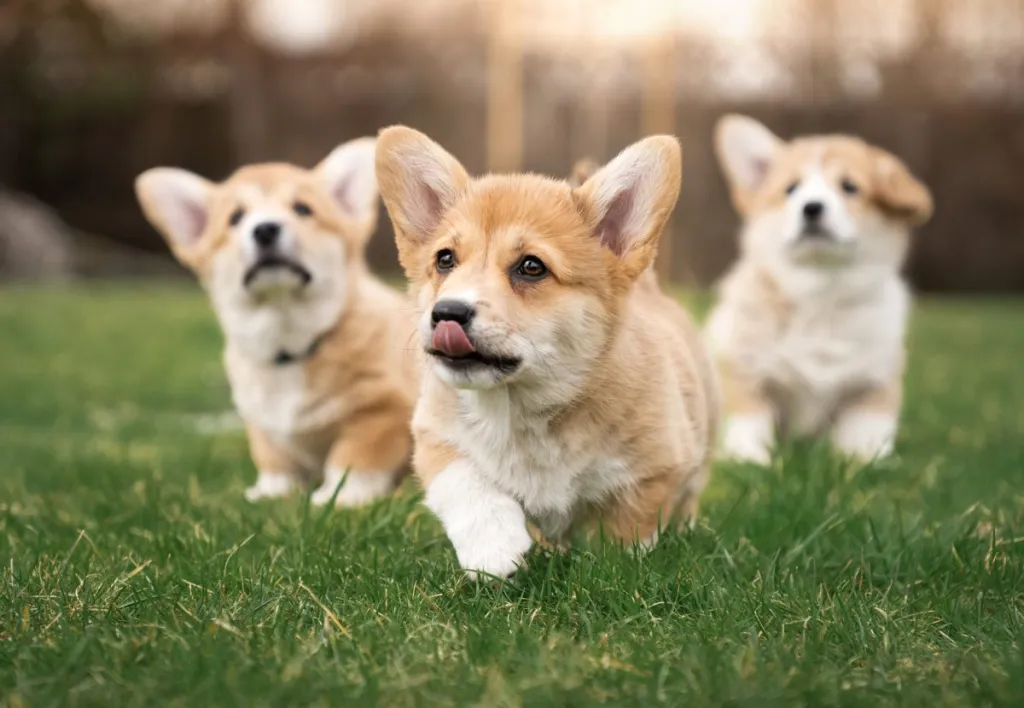Raising a puppy is an exciting journey. When you parent a puppy, you’ll never be bored! Your little canine companion’s behavior is ever-evolving as they move through the puppy developmental stages until adulthood. Each stage features distinct behavioral patterns and developmental milestones that shape their future personalities. By understanding these crucial stages of puppy development, you can equip yourself to provide the best care, training, and socialization for your furry friend.
Whether you’re a first-time puppy parent or a seasoned dog lover, this guide will provide valuable insights into the evolving needs of your puppy and help you build a strong foundation for a well-rounded canine companion. Let’s dive into your puppy’s behavioral and developmental journey!
What are the stages of puppy development?
Most dogs are technically puppies for up to 2 years of age, though puppyish behavior may end sooner or last longer in some dog breeds. The stages listed below are essential and fairly constant. However, dogs are open to new knowledge and training well beyond the puppy years. Here are some general guidelines for puppy stages of development.
The neonatal stage: Birth to 2 weeks
- The senses of touch and taste are immediately present after birth.
- The mother has the most influence over the puppy.
The transitional stage: 2 to 4 weeks
- Mother and littermates continue to influence a puppy’s behavior.
- The sense of hearing and smell develop, eyes open and the teeth begin to appear.
- A puppy begins to stand, walk a little, wag its tail, and bark.
- A puppy’s eyesight develops by 4 to 5 weeks.
The socialization stage: 3 to 12 weeks
- A puppy needs occasions to meet other pets and people during this stage.
- By 3 to 5 weeks of age, play becomes important as a puppy becomes aware of his or her surroundings, companions (both people and dogs), and relationships.
- The influence of the puppy’s littermates increases at 4 to 6 weeks of age as they learn more about being a dog.
- From 4 to 12 weeks of age, a puppy’s interaction with people becomes more influential. With littermates, the puppy learns to play, develops social skills, and learns the inhibited bite. They also explore their social boundaries and hierarchy as well as improve physical coordination.
- By 5 to 7 weeks of age, a puppy needs positive human interaction as they develop curiosity and explore new experiences.
- A puppy has full use of their senses by 7 to 9 weeks of age. A puppy refines their coordination and physical abilities. They can now begin housetraining.
- At 8 to 10 weeks of age, a puppy can experience real fear involving everyday objects and experiences. During this stage, a puppy needs support and positive reinforcement.
- Enhancing responses, advancing social skills with littermates, and investigating the surroundings and items takes place from 9 to 12 weeks of age. This is a good time to begin elementary training as a puppy will begin to focus on people.
The ranking stage: 3 to 6 months
- Puppies see and use ranking (dominance and submission) within the household or “pack,” including people.
- A puppy’s play group, which may now include those of other species, becomes influential in their life.
- Teething and chewing begins.
- A puppy experiences another fear stage at 4 months of age, so use positive reinforcement and introductions to objects and situations.
The adolescent stage: 6 to 18 months
- A puppy is most affected by human and dog “pack” members.
- A puppy may challenge people as part of exploring their dominance in the “pack.”
- At 7 to 9 months of age, a puppy will begin exploring more of their territory, prompting a second chewing phase.
- A puppy will experience the beginnings of sexual behavior if not spayed or neutered.
The role of early socialization in puppy development
Just as the saying “a chip off the old block” often holds true for humans, it can apply to dogs as well. Puppies that are well-socialized are more likely to come from dogs that are well-socialized.
A basic part of a pup’s socialization is based on their mother’s attitude (relaxed or skittish) toward people. The way you interact with your new puppy can play a big role, too. Playing, petting, and talking with your pup can help them develop the “people skills” needed to be a good member of the family and the neighborhood.
While weaning for puppies can take place at 6 to 7 weeks of age, they are still learning important skills from their littermates as their mother gradually leaves them for longer periods of time. Puppies that stay with their litter for at least 3 months are more likely to develop good social skills as they act as role models for each other.
When puppies are separated from their littermates too early, they often fail to develop key social skills, such as sending and receiving signals, the hierarchy process (who is in charge), how far to go in play-wrestling, what mouthing pressure is acceptable (inhibited bite), and so forth. Play is important for puppies. It increases their dexterity, social interaction, and helps them to learn their boundaries.
Through these interactions with their mother and littermates, puppies learn what being a dog is all about. During the first 8 weeks of age, skills not acquired may be lost forever.
Now that you know about the stages of puppy development, read up on how to potty pad train your puppy, teach your puppy to stay home alone, and how to puppy-proof your home.









